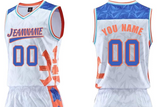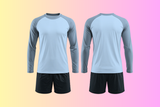In today’s competitive ecommerce landscape, customers increasingly seek personalized shopping experiences that align with their unique tastes and preferences. Tailoring product offerings and creating bespoke user experiences not only enhances customer satisfaction but also fosters brand loyalty. Platforms like Shopify, WooCommerce, and BigCommerce offer a range of tools and plugins that enable online stores to customize their offerings with precision and ease.
Integrating customization features into these popular ecommerce platforms can be transformative for businesses. This article explores best practices for implementing personalization features in Shopify, WooCommerce, and BigCommerce, along with some essential plugins and software solutions.

The Importance of Ecommerce Customization
Personalization is more than just a trend—it’s a necessity. From customizable product options to tailored user experiences based on browsing and purchase behavior, customization features cater to individual preferences, improving conversion rates and customer satisfaction.
A report from Epsilon revealed that 80% of customers are more likely to make a purchase from a brand that offers a personalized experience. With ecommerce giants like Amazon setting the standard, smaller businesses need to embrace customization to remain competitive.
Integrating Customization Features in Shopify
Shopify is known for its user-friendly interface and extensive app marketplace. However, integrating effective personalization features requires strategic planning and the right set of tools.
1. Leveraging Shopify Apps for Personalization
Shopify offers an array of apps designed to enhance product customization. Here are some recommended apps:
:- Bold Product Options: This app allows merchants to create and manage custom product options, from dropdown menus to swatches, which provide a seamless customer experience.
:- Infinite Options by ShopPad: Ideal for stores offering products with various customization fields such as engraving or custom text, Infinite Options can help increase customer engagement.
2. Dynamic Checkout Experiences
Personalizing the checkout experience is essential. Implementing custom discount codes based on user behavior or offering one-click upsells and cross-sells can create a more tailored checkout flow. Shopify’s Checkout Scripts allows merchants to write custom scripts to automate these experiences.
Personalization Solutions for WooCommerce
WooCommerce is one of the most popular ecommerce plugins for WordPress, known for its flexibility and extensive customization capabilities. WooCommerce’s open-source nature makes it a prime choice for businesses looking to implement detailed personalization features.
1. Plugins for Product Customization
WooCommerce offers a plethora of plugins to enhance personalization. Some notable ones include:
:- WooCommerce Product Add-Ons: This plugin enables store owners to create additional product options such as checkboxes, text fields, and file uploads, which is perfect for personalized gifts or clothing.
:- YITH WooCommerce Product Bundles: Merchants can use this plugin to create custom bundles, allowing customers to select and personalize items within a set bundle.
2. Custom User Experiences
WooCommerce’s vast range of extensions and integrations means that merchants can go beyond product personalization and create tailored user experiences. For instance, using the WooCommerce Memberships plugin, businesses can create exclusive content or products for members, offering personalized discounts and perks.
Customizing with BigCommerce
BigCommerce offers a range of built-in customization tools and a rich ecosystem of third-party apps that facilitate product personalization. This platform is known for its scalability and flexibility, making it a top choice for growing businesses.
1. Native Customization Capabilities
BigCommerce comes with several built-in options for creating product variants and custom options. However, for more advanced features, third-party apps are often necessary. One of the standout apps in BigCommerce’s marketplace is Product Customizer by BigCommerce. It allows merchants to add custom fields and file uploads, ideal for stores offering personalized products like monogrammed accessories or bespoke jewelry.
2. AI-Powered Personalization
BigCommerce’s open API structure makes it easier to integrate third-party AI tools that offer personalized product recommendations. For instance, integrating Nosto with BigCommerce enables AI-driven personalization, such as automated product suggestions, targeted campaigns, and tailored landing pages based on user behavior.
Key Considerations for Implementing Customization Features
To effectively integrate personalization features, it’s essential to approach it strategically. Here are some best practices to consider:
1. Understanding Customer Preferences
The key to successful customization is understanding what your customers want. Utilize data analytics tools like Google Analytics or platform-specific insights to gather valuable information on customer preferences. This data-driven approach ensures that the customization options you offer align with customer expectations.
2. Prioritizing Mobile Optimization
With the growing number of customers shopping via mobile devices, it’s crucial to ensure that all customization features work seamlessly on mobile. This includes ensuring that custom product options, swatches, and input fields are optimized for smaller screens.
3. Testing and Refining User Experience
Customization features need thorough testing to guarantee they work as intended. Conduct regular A/B tests to refine these features and monitor the impact on conversion rates. For example, testing the placement and visibility of customizable options can improve user experience and encourage more conversions.
Popular Plugins and Tools for Ecommerce Customization
1. Bold Product Builder
Bold Product Builder is a Shopify app that allows customers to build their products from scratch. Ideal for apparel or home decor stores, this app offers an engaging and interactive shopping experience.
2. Fancy Product Designer
Compatible with both WooCommerce and Shopify, Fancy Product Designer enables stores to offer a drag-and-drop interface for customers to design their own products, such as T-shirts, phone cases, and posters.
3. OptinMonster
While not a product customization tool per se, OptinMonster can significantly boost conversion rates by offering targeted pop-ups based on customer behavior. By showing personalized offers at the right moment, stores can drive more sales and engagement.
4. Product Personalizer
This app works seamlessly on Shopify and allows for dynamic personalization of products with live previews. Customers can view how their personalized items will look before purchasing, enhancing the overall experience.
FAQs
How can I integrate custom product options in Shopify?
Shopify offers several apps like Bold Product Options and Infinite Options, which enable merchants to add custom fields such as text inputs, dropdowns, or file uploads to their products.
What are the best plugins for WooCommerce personalization?
WooCommerce Product Add-Ons and YITH WooCommerce Product Bundles are popular plugins that allow merchants to create personalized options for their products. Additionally, Fancy Product Designer offers advanced customization capabilities.
Can BigCommerce handle complex product customizations?
Yes, BigCommerce offers built-in tools for basic product variants and customizations. For more complex options, third-party apps like Product Customizer and integration with AI solutions like Nosto can handle advanced personalization.
How important is mobile optimization for ecommerce customization?
Mobile optimization is critical, as a large percentage of customers shop using mobile devices. Ensuring that all custom options are responsive and user-friendly on mobile is essential to retain and convert customers.
What is the role of AI in ecommerce personalization?
AI-powered tools such as Nosto and OptinMonster offer automated, data-driven personalization, helping businesses deliver product recommendations, personalized campaigns, and targeted experiences based on user behavior.
How can personalization boost sales in an ecommerce store?
Personalization increases customer satisfaction by catering to individual preferences, leading to higher engagement and conversion rates. Tailored product recommendations, custom options, and targeted offers encourage more sales and repeat purchases.
Conclusion
Integrating customization features into ecommerce platforms like Shopify, WooCommerce, and BigCommerce is a strategic move that can elevate customer experiences and drive conversions. By leveraging the right plugins and personalization tools, merchants can create tailored shopping journeys that meet their customers' needs and preferences.
When implementing these features, it’s essential to prioritize user experience, gather data-driven insights, and continuously test and refine your approach. By doing so, businesses can achieve greater customer satisfaction, boost sales, and gain a competitive edge in the ecommerce landscape.




